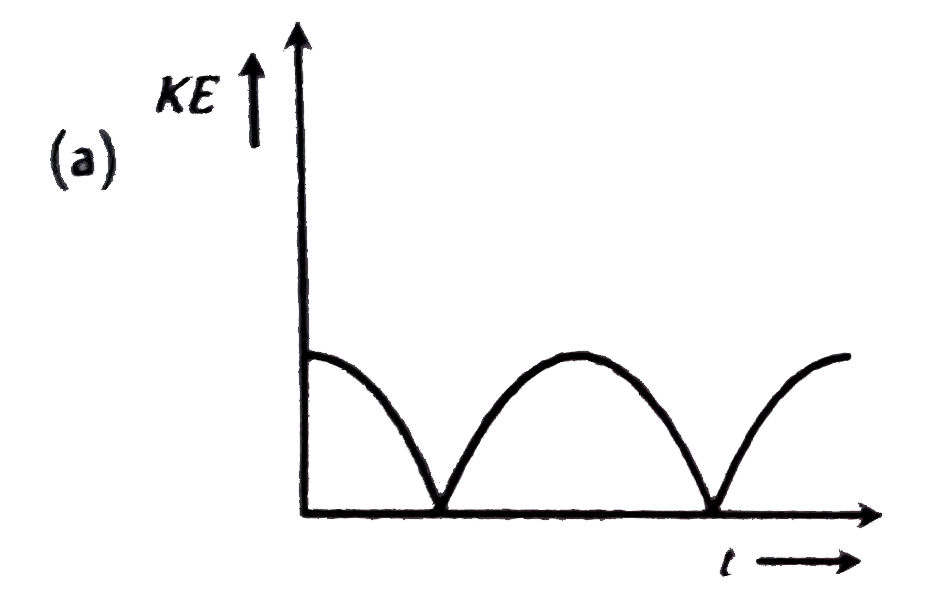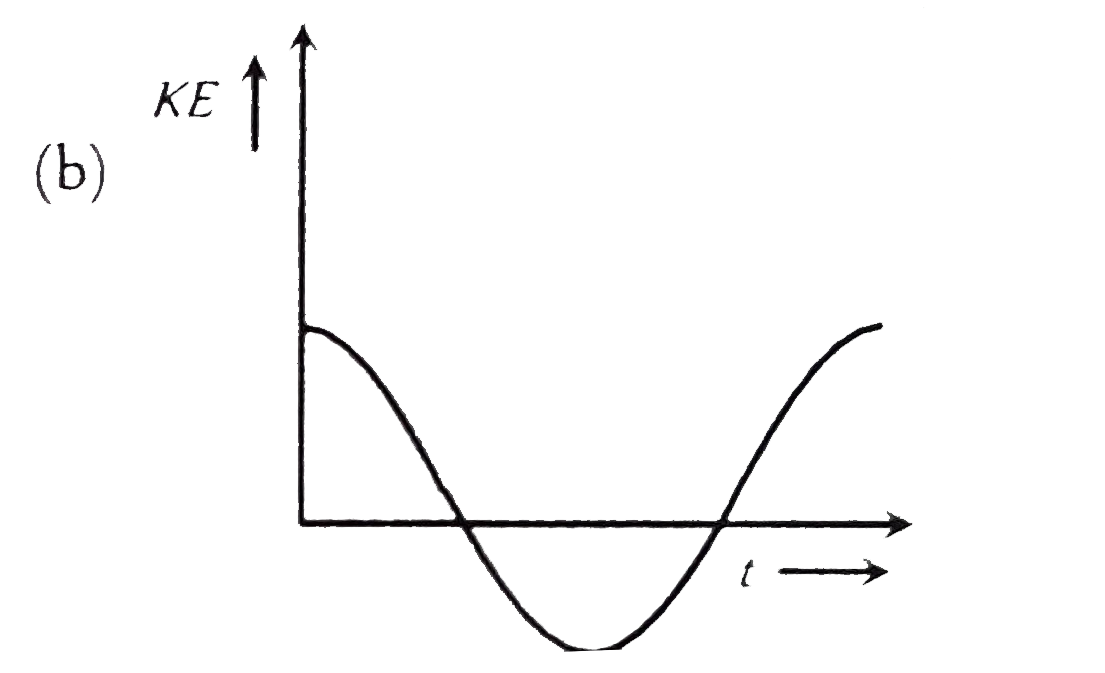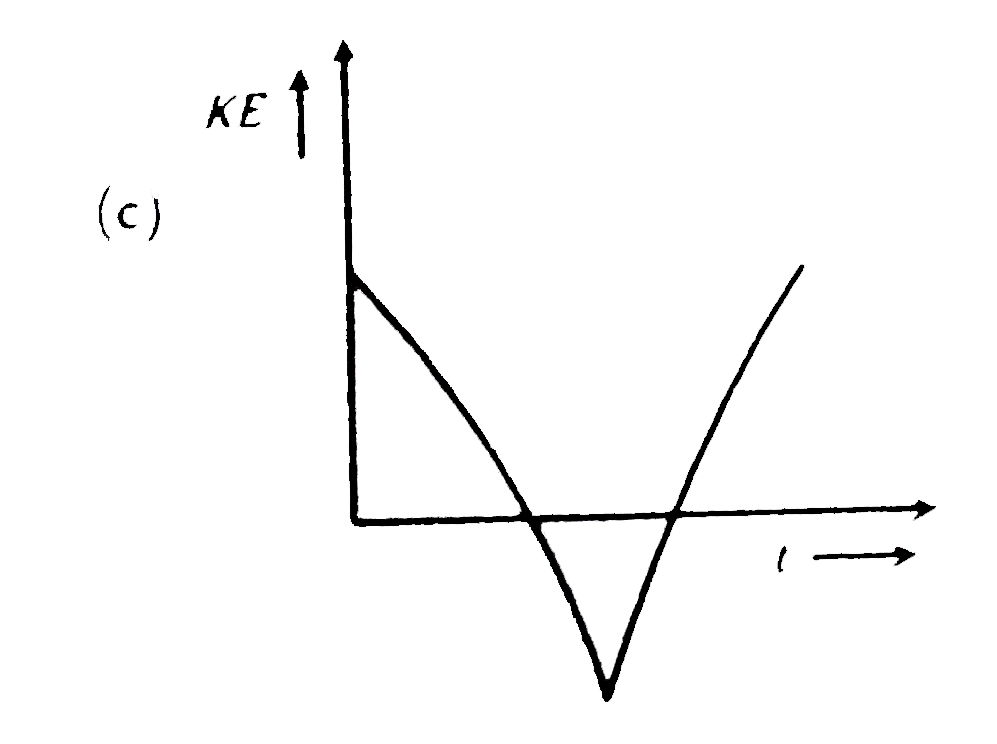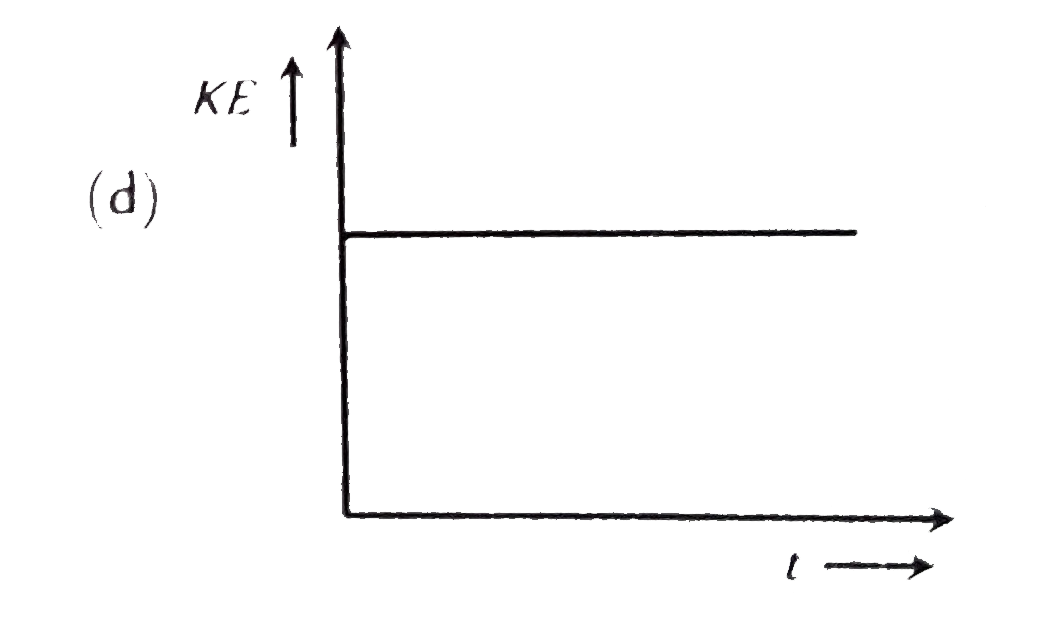A body of mass 1 kg starts moving from rest t=0 in a circular path of radius 8 m. Its kinetic energy varies with time as k=2t2J then magnitude of centripetal acceleration ( in m/s2 ) at t=2s is.
The correct Answer is:2
dkdt=4t
dk=4tdt=F.ds
4tdt=aTds
t∫04tdt=v∫0vdv
4t22=v22 att=2s
⇒v=2t v=4m/s
ac=v2/R=42/8=2m/s2
Topper's Solved these Questions
Similar Questions
A body starts revolving from rest in a circular path of radius 2 m with tangential acceleration a =2tm/s2. If its total acceleration at t=2 sec. is n√5m/s2, then the value of n is:
View SolutionA particle is performing circular motion of radius 1 m. Its speed is v=(2t2)m/s. What will be magnitude of its acceleration at t=1s.
View Solution
Knowledge Check
A body performs S.H.M. Its kinetic energy K varies with time t as indicated by graph
A B
B C
C D
D
A particle is moving in a circle of radius 1 m with speed varying with time as v = (2t) m/s. In first 2 sec:
Adistance travelled by the particle is 4 mBdisplacement of the particle is 4 sin 2Caverage speed of the particle is 5m/sDaverage velocity of the particle is zeroA body of mass m is moving along a circular path of radius R such that its kinetic energy at any instant is k=k0(tt0)2
where t0 is an appropriate constant. ThenAThe magnitude of tangential component of force acting on it must be constant.BThe magnitude of centripetal force acting on the body will be directly proportional to t2.CAfter a long time, the resultant force will make a very small angle with the radius.DThe magnitude of centripetal force acting on the body will be directly proportional to t.
A particle lis constrained to move in a circular path of radius r = 6m. Its velocity varies with time according to the relation v = 2t (m/s). Determine its
(i) centripetal acceleration,
(ii) tangential acceleration,
(iii) instantaneous acceleration at (a) t = 0 sec. and
(b) t = 3 sec.
View SolutionA particle is moving in a circle of radius 1 m with speed varying with time as v=(2t)m/s. In first 2 s
View SolutionA body of mass 1 kg is moving in a vertical circular path of radius 1 m. The difference between the kinetic energies at its highest and lowest positions is [take g=10m/s2]
View SolutionA body of mass m kg starts from rest and travels a distance of s m in t seconds. The force acting on it is
View SolutionA particle of mass 1 kg moves in a circular path of radius 1 m such that its speed varies with time as per equation v=3t2m/s where time t is in seconds. The power delivered by the force acting on the paritcle at t=1s, is :−
View Solution
